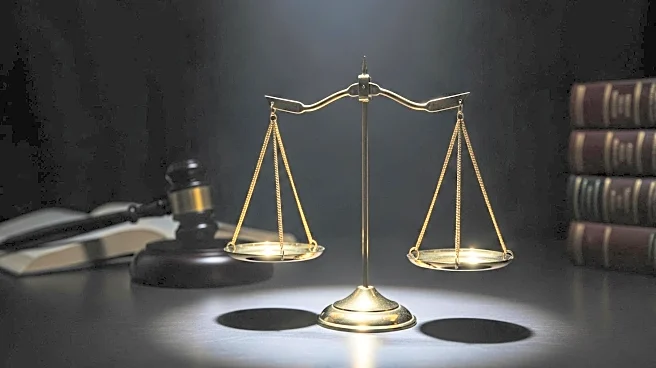What is the story about?
What's Happening?
Recent developments have highlighted growing tensions between the Trump administration and federal judges, with several judges questioning the administration's credibility in court. A Trump-appointed judge in Oregon criticized the president's decision to deploy the National Guard to Portland, labeling it as 'untethered to the facts.' Similarly, in Tennessee, an Obama-appointed judge allowed Kilmar Abrego García to pursue a claim of 'vindictive prosecution.' In Chicago, Judge April M. Perry, appointed by President Joe Biden, expressed concerns over the Department of Homeland Security's credibility, citing affidavits that suggested arrests of individuals who did not commit crimes. These judicial admonishments have prompted fervent responses from White House officials, including Stephen Miller, who accused a judge of engaging in a 'legal insurrection.' The administration has faced over 420 lawsuits, with more than 90 rulings temporarily blocking its policies.
Why It's Important?
The escalating tensions between the Trump administration and the judiciary could have significant implications for the U.S. legal system. The administration's strained relationship with judges may undermine the credibility of federal prosecutors, making it more challenging for the government to present its cases effectively. This situation could erode the trust and goodwill traditionally enjoyed by the Justice Department in courtrooms, potentially affecting the administration's ability to implement its policies. The administration's rhetoric and actions may also lead to a broader perception of judicial activism, influencing public opinion and the political landscape. The ongoing legal battles could shape the future of executive authority and judicial independence in the U.S.
What's Next?
The Trump administration is likely to continue appealing unfavorable rulings, with the expectation of vindication by higher courts, including the Supreme Court. The administration's confidence in the Supreme Court, where it has secured multiple victories, may drive its litigation strategy despite setbacks in lower courts. However, prolonged conflicts with federal judges could slow down the administration's legal efforts and have lasting effects beyond Trump's term. The depletion of goodwill with judges may result in increased scrutiny of the administration's legal arguments, potentially impacting future cases and the overall perception of the Justice Department.
Beyond the Headlines
The tensions between the Trump administration and the judiciary raise ethical and legal questions about the balance of power and the role of the courts in checking executive actions. The administration's approach to handling legal challenges may influence the public's trust in the judicial system and the perceived impartiality of judges. The situation also highlights the importance of maintaining professional relationships and credibility in legal proceedings, which are crucial for ensuring justice and upholding the rule of law.
















